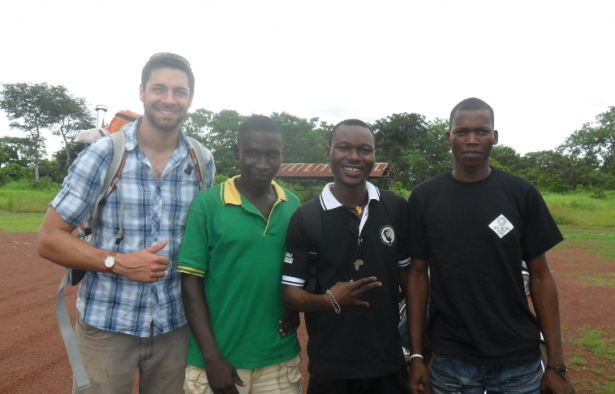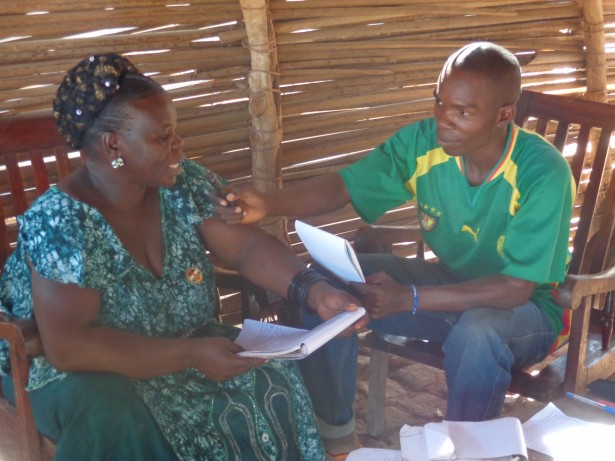The following was written by Sébastien Porter, a Project Officer at Invisible Children Central African Republic.
The Invisible Children office in Central African Republic, or ICCAR, is back in business. With a transitional CAR government in place, the southeast of the country is much more stable than it was a few months ago, giving our team the ability to access areas which previously were too insecure to travel to.
While the Seleka rebellion has most directly affected communities in and around the capitol city of Bangui, the two main regions where Invisible Children works, known as Mbomou and Haut Mbomou, have so far been spared. The presence of Ugandan forces and U.S. advisors working with the African Union to to address the LRA has deterred Seleka rebels from plundering the southeast region of the country.
To speed up LRA defections in the region, ICCAR has recruited Johnny Vianney Bissakonou to the team as the National Media Coordinator. Johnny has previously worked for Radio Ndeke Luka, Central Africa’s most prominent radio. As a matter of fact, he has already performed an evaluation of two FM radios, Radio Ani Du Sa in Mboki and Radio Zereda in Obo, that ICCAR partnered with to broadcast “Come Home” messages to LRA groups in the region. Drawing from his extensive experience as journalist, Johnny provided training to local radio operators about technical maintenance, digital radio production, and journalism ethics.

L-R: Sébastien Porter (ICCAR Project Officer), Boniface (of JUPEDEC), Johnny Vianney Bissakonou (ICCAR National Media Coordinator), and Arthur Zougabe (HF/FM Technical expert)
One practical exercise from Johnny’s training involved an interview with mayors from the towns of Obo and Mboki, who recently accepted an invitation from our Invisible Children Ugandan team to visit Gulu as part of a trip to sensitize local authorities in CAR about the LRA.
The journalists participating in Johnny’s training asked the mayors for their impressions about the trip to Gulu, their perspectives of the LRA situation, and the political commitments they have made — or are planning to make — to address the crisis. This kind of work with local FM radio programmers is helping to strengthen their ability to monitor the actions and policies of local government representatives.

L-R: Marie-Claire (Mboki Mayor) and a Radio Ani du Sa journalist
For example, from the interviews conducted by these journalists, radio listeners in the community learned that the mayor of Obo recently delivered a death certificate to parents of an LRA victim. This political gesture, which is unique in CAR, is the kind of action on the part of the local government that can help lead the way to a broader recognition of LRA violence in the country.
The mayor went on to emphasize that, while the LRA may be defeated one day on the ground, justice can only be obtained when impunity is brought to an end. The collection and documentation of LRA victims’ testimonies, and political recognition of their situation, are paramount to a legal resolution to the conflict and the work of community reconciliation and rehabilitation.
With this in mind, ICCAR is in the process of working with local community leaders to help develop victims’ associations in southeastern CAR and to extend victim’s rights trainings that we have helped to provide in Obo into towns like Mboki.
From the headquarters in San Diego to our field office in Obo, Central African Republic, our Invisible Children team is committed to working with activists, local communities, and policymakers to achieve a zeroLRA world.
Think people should hear about this?